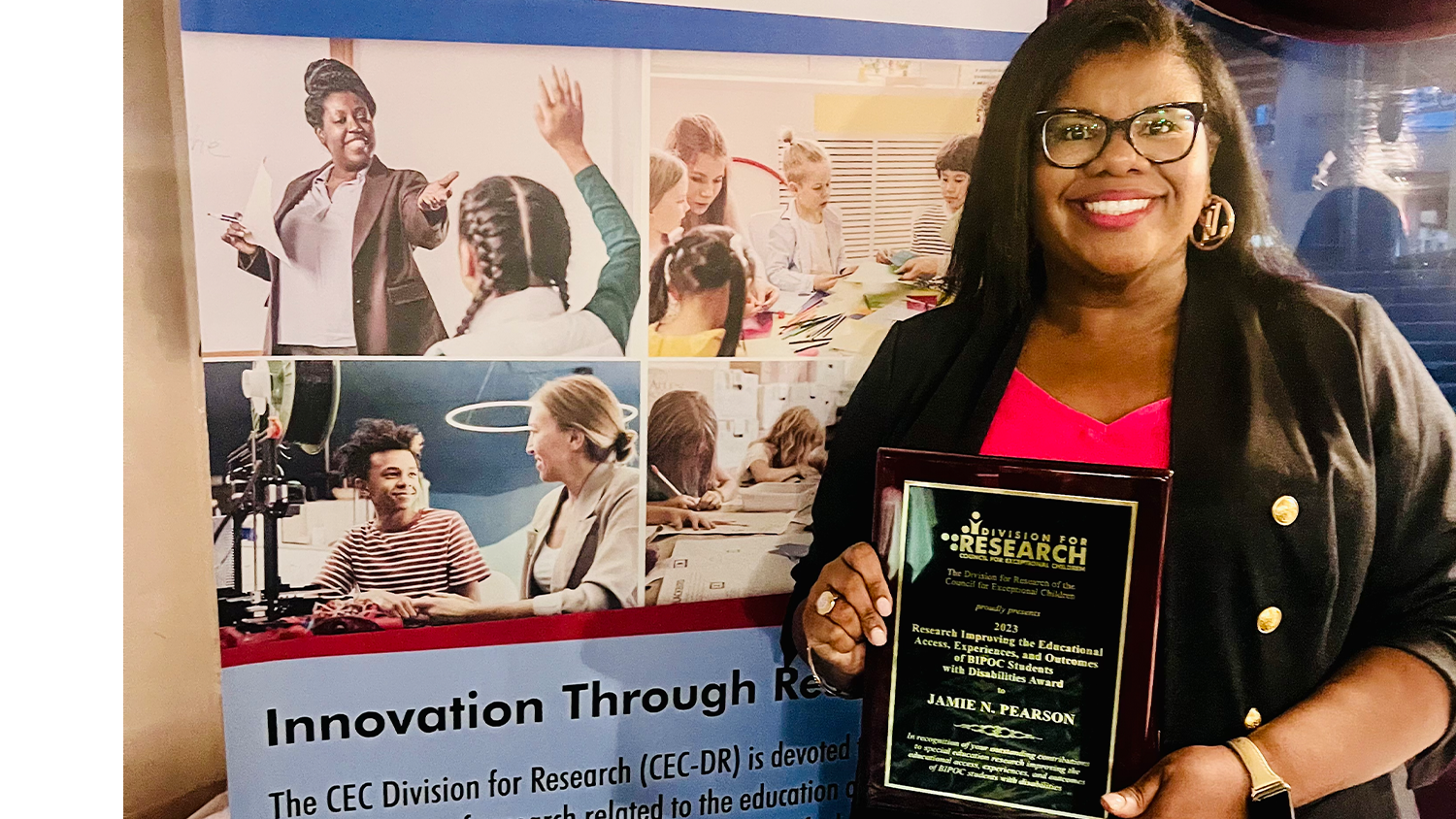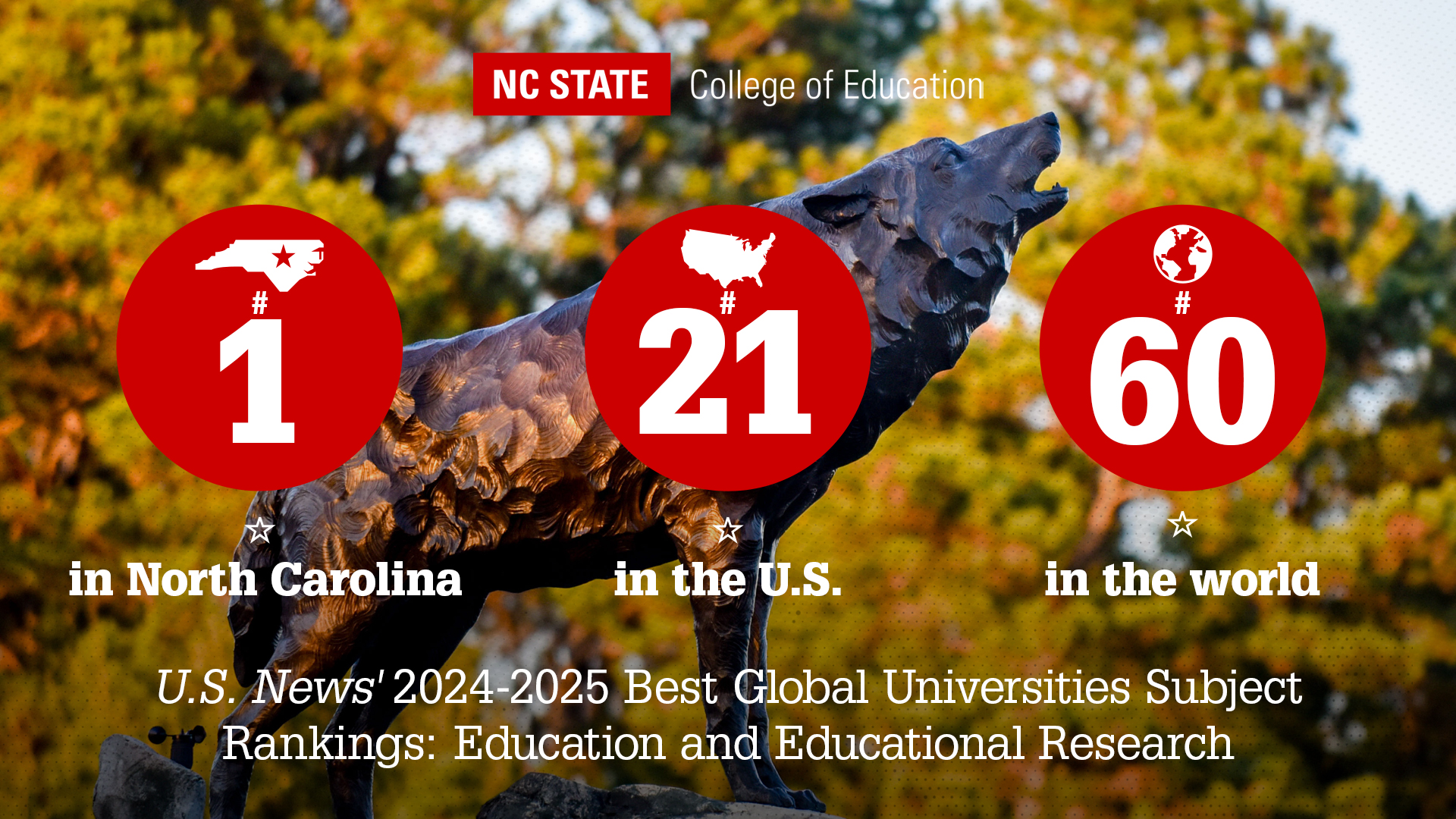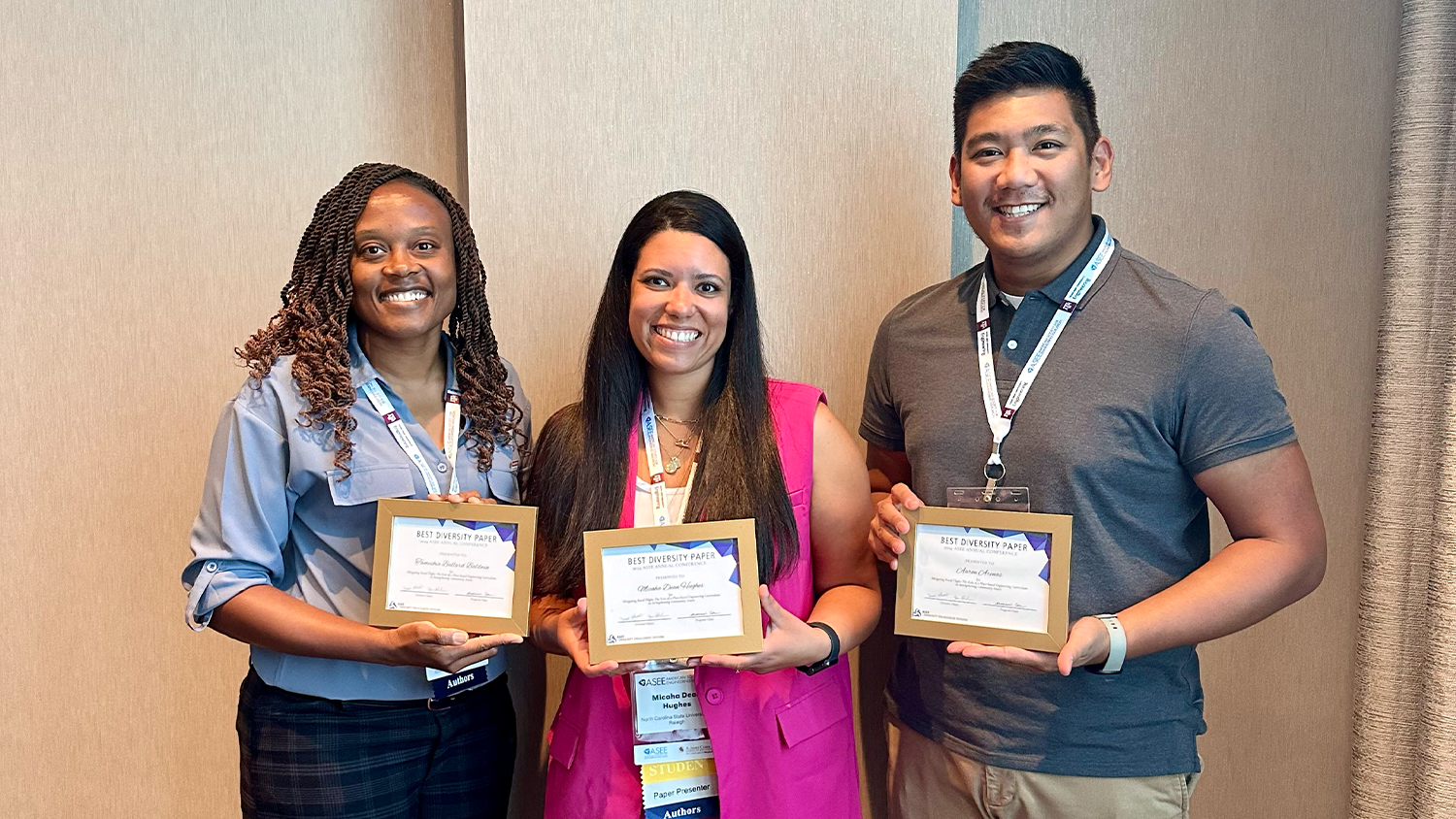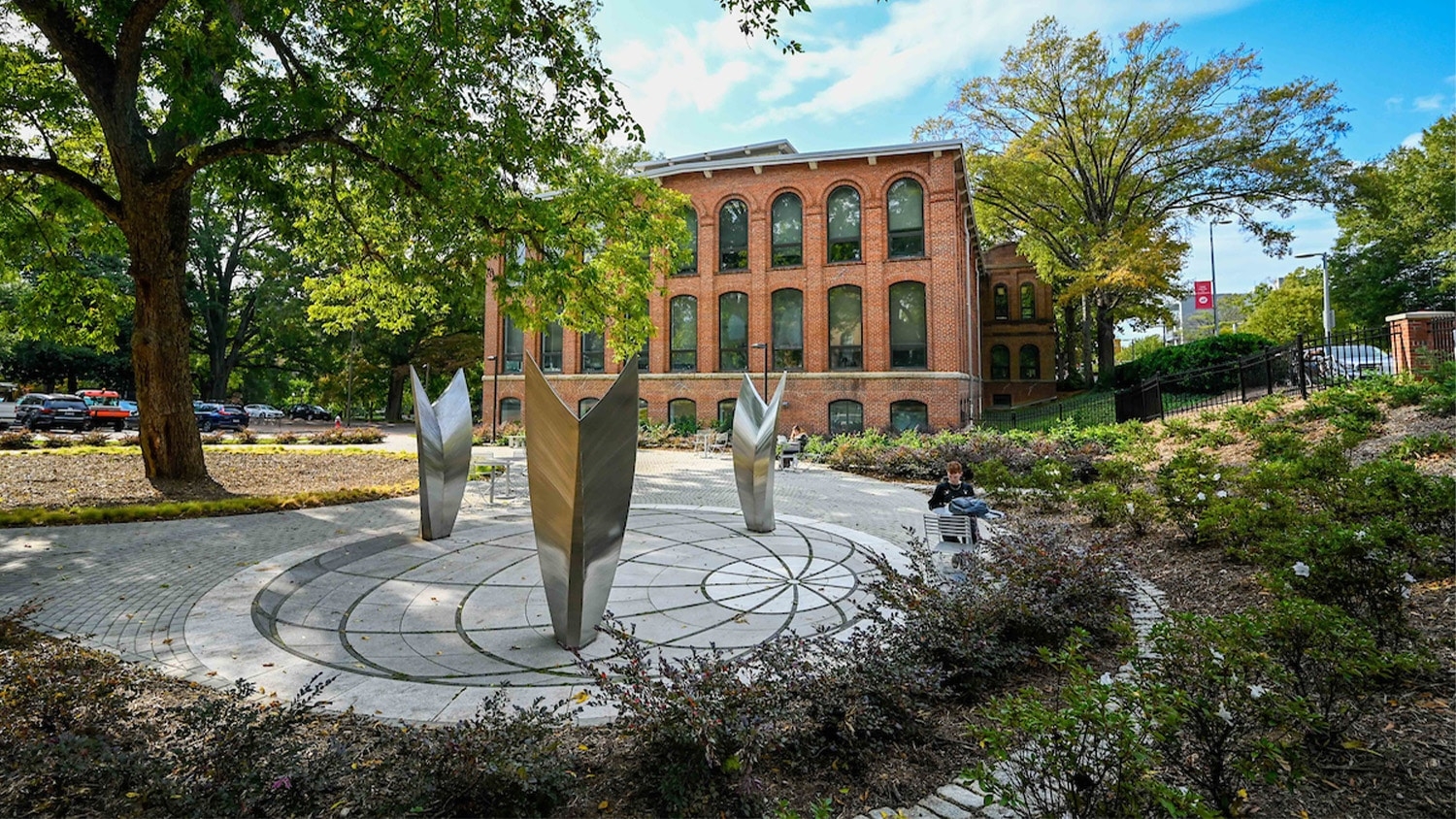Assistant Professor Jamie Pearson Receives Inaugural Research Improving the Educational Access, Experiences and Outcomes of BIPOC Students with Disabilities Award

Jamie Pearson, an assistant professor of special education in NC State’s College of Education,
has received the inaugural Research Improving the Educational Access, Experiences and Outcomes of BIPOC Students with Disabilities Award from the Council for Exceptional Children Division for Research.
The award recognizes rigorous research that has contributed to a better understanding of or improvement in educational access, experiences and outcomes for students with disabilities who identify as Black, Indigenous or people of color (BIPOC).
“When I first began my research on autism and racial and ethnic disparities, many scholars in the field were questioning why this work was even needed. Folks had not yet begun to explore racial and ethnic disparities in autism research,” Pearson said. “So, it is truly an honor that I get to continue my line of research with Black autistic children and their families, and I am grateful that my scholarship has been recognized on a national platform.”
Pearson is the director of Fostering Advocacy, Communication, Empowerment and Support (FACES), a culturally-responsive, family-centered intervention specifically designed for Black families of children with autism. The program aims to inform and empower historically underrepresented families and caregivers of children with autism by addressing inequities in access and support services among Black children, who often face disparities when it comes to being diagnosed.
In 2021, she received an IES Early Career Grant to develop and test the promise of the FACES intervention when delivered by community-based parent educators.
“Without culturally responsive interventions like FACES, many families of color feel underrepresented and unheard in most autism support groups and platforms. FACES is one step towards more equitable access by building family capacity,” Pearson said. “After FACES, many of our graduates share success stories from individualized education program (IEP) meetings or they host autism awareness events in their faith communities. They build and spread knowledge around neurodiversity, so it’s important for me to impact change in that way.”
Pearson is currently wrapping up the second year of work on her IES Early Career Grant and has been working on three critical pieces of the FACES intervention, which ran in person this past fall for the first time since the start of the COVID-19 pandemic. The work, she said, includes refining intervention content and materials based on feedback from the initial three iterations as well as building manuals to guide future community-based FACES facilitators. In fall 2023, these manuals will be tested in a single-case experimental design to ensure novice facilitators can implement the FACES intervention with fidelity.
- Categories:


